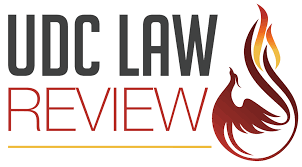
Abstract
On January 3, 2019, Congresswoman Eleanor Holmes Norton, the District of Columbia's (the "District') nonvoting delegate to the House of Representatives, reintroduced the Washington, D.C. Admission Act, which would make much of the District the 51st state. While Norton had made a tradition of opening each new Congress by introducing D.C. democracy bills, the context this time gave District advocates more reason to be optimistic. With the Democrats gaining control of the House, the bill gained a record 155 original cosponsors, and Representative Elijah Cummings, chair of the House Committee on Oversight and Reform, committed to holding a hearing on a statehood bill for the first time since 1993. Meanwhile, blocks from the Capitol, a lawsuit had been brought two months prior by a group of District residents against the federal government arguing that the denial of the full congressional voting rights was unconstitutional. This strategy of asking Congress or the courts for relief has been tried before with limited success and may yet succeed in the current environment.5 However, there is another strategy that has been applied in recent years that indisputably has secured greater autonomy for the District's nearly 700,000 residents, who have long lived without the same basic rights to democracy as other Americans. This article discusses this new strategy adopted by the District in recent years to take advantage of authority, by District voters and the District government, and to advance democracy at the local level, instead of relying exclusively on the federal government to take affirmative action on the District's behalf First, the article recounts the history of Congress's inability or unwillingness to give the District greater democracy. Second, it explains how given this history, the District can and should rely on the broad authority delegated to it by Congress in the Home Rule Act to advance democracy. Finally, the article describes several initiatives of the new strategy through which the District has applied or is applying this principle.
First Page
108
Recommended Citation
Walter A. Smith Jr. & Kevin M. Hilgers,
Laboratory Of Democracy: How the District of Columbia is Using the Home Rule Act to Achieve Elements of Statehood,
21
U.D.C. L. Rev.
108
(2020).
Available at:
https://digitalcommons.law.udc.edu/udclr/vol21/iss2/5

